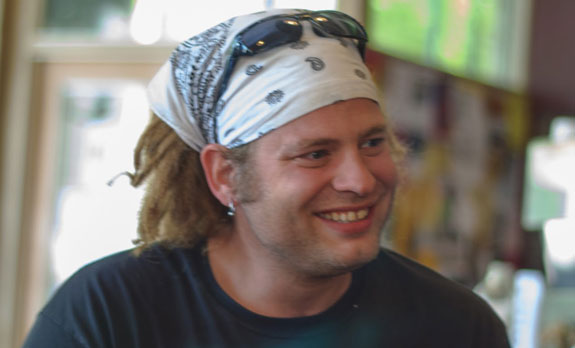
Robert Childs, a convicted sex offender, worked as an FBI informant in Washington state before arriving in Key West earlier this year. (Photo circulated on social media.)
By Trevor Aaronson
Florida Center for Investigative Reporting
An FBI informant behind the controversial terrorism prosecution of two mentally ill men in Seattle, Wash., is now facing criminal charges in Florida for using a stolen credit card and failing to register as a sex offender.
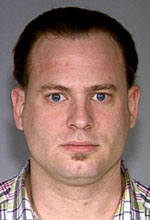
An early mugshot of FBI informant Robert Childs
Robert Childs, 38, is awaiting trial in Monroe County. Key West police arrested him July 3 on Duval Street, the main entertainment drag of the nation’s southernmost city.
Childs is one of the FBI’s more than 15,000 registered informants. Many of these informants join the FBI’s ranks after being convicted of crimes, enticed by reduced sentences and the potential for six-figure paychecks.
Childs was convicted of child molestation and child rape, court records show. After those convictions, he was arrested for failing to register as a sex offender in California, Oregon and Washington state.
None of those offenses prevented Childs, a baby-faced man who alters his appearance by changing his facial hair, from making a lucrative career as an FBI informant, earning tens of thousands of dollars per month.
His work with the nation’s lead law enforcement and domestic counterterrorism agency, which has an annual budget of $8.4 billion, began on the opposite end of the country.
On June 3, 2011, Childs called the Seattle Police Department and told detectives that a friend of his named Abu Khalid Abdul-Latif was interested in attacking a military installation in Tacoma, Wash. Abdul-Latif had already recruited an accomplice, Walli Mujahidh, Childs claimed.
Seattle police referred Childs to the FBI, which then launched an elaborate and months-long counterterrorism sting operation to nab Abdul-Latif and Mujahidh as would-be terrorists. Childs would be the agent provocateur.
Wearing an FBI wire, Childs recorded hundreds of hours of conversations with Abdul-Latif about launching an attack in retaliation for alleged U.S. atrocities in the Middle East. They initially plotted to attack a military base, but together deemed the target too risky, given the armed guards and fortification. Instead, Abdul-Latif suggested an incoming troop processing station.
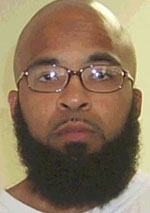
Abu Khalid Abdul-Latif
“Imagine how many young Muslims, if we’re successful, will try to hit these kinds of centers. Imagine how fearful America will be, and they’ll know they can’t push Muslims around,” Abdul-Latif told Childs, according to FBI records.
Abdul-Latif bought a bus ticket for Mujahidh, who lived in Southern California, to come to Seattle. They needed to select a password for Mujahidh to collect the ticket. Abdul-Latif suggested “jihad.” He and Childs laughed about the word choice, and then Abdul-Latif settled on “OBL,” for Osama bin Laden.
But Abdul-Latif and Mujahidh had no contacts with terrorists overseas or in the United States. They also had no weapons, no access to people who could sell them weapons, and little money to buy weapons even if they found a black-market arms dealer. In fact, Abdul-Latif had filed for bankruptcy protection, listing $800 and a 1995 Honda Passport with 162,000 miles as his only assets.
The two men were also mentally ill. Abdul-Latif, whose birth name was Anthony Davis, had a history of huffing gasoline and had attempted suicide because he “felt lonely and had no use to live,” according to a psychologist’s report. Mujahidh, whose real name was Frederick Domingue Jr., had been diagnosed with schizoaffective disorder, which made it difficult for him to distinguish reality from fantasy.
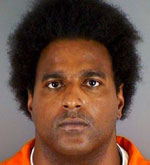
Walli Mujahidh
Childs was law enforcement’s only source who claimed Abdul-Latif and Mujahidh were terrorists on the make. And he wasn’t an unbiased source. He owed thousands of dollars to Abdul-Latif and had even tried — unsuccessfully — to steal his wife, according to an interview Binta Moussa-Davis, Abdul-Latif’s wife, gave the Seattle Times.
Nonetheless, the FBI paid Childs $90,000 to lead the sting operation in which he provided Abdul-Latif and Mujahidh with three assault rifles as part of their plan to attack the military recruiting station. Abdul-Latif and Mujahidh didn’t know how to use the guns the FBI had provided as part of the sting.
“This is an automatic?” Abdul-Latif asked Childs as he held up the gun in a parking garage, according to the FBI affidavit.
Childs then showed him how to switch on the fully automatic setting.
FBI agents rushed into the parking garage and arrested Abdul-Latif and Mujahidh. They were charged with conspiracy to murder officers and agents of the United States, conspiracy to use a weapon of mass destruction, and four firearms counts.
Abdul-Latif and Mujahidh both pleaded guilty. Abdul-Latif received 18 years in prison and Mujahidh 17 years. They are two of more than 175 defendants since 9/11 who have been prosecuted following FBI counterterrorism stings — aggressive operations often led by undercover informants that a Human Rights Watch report in July criticized for targeting “particularly vulnerable people, including those with intellectual and mental disabilities and the indigent.”
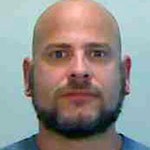
Robert Childs following his arrest in Key West
After the counterterrorism sting, Childs resurfaced with shoulder-length dreadlocks and a scraggly beard as a member of the Clandestine Insurgent Rebel Clown Army, a Seattle activist group whose members dress like clowns during protests. Childs’ cover was blown when activists there linked him to the case of Abdul-Latif and Mujahidh and exposed him on social media, posting photographs and warning others that he works for the FBI.
Childs then moved to Key West. It’s unclear whether he continued to work for the FBI while in Florida. FBI officials declined to comment for this story.
According to a police report from Key West, an officer responded to a call on July 3 from a Johnny Rockets restaurant about the fraudulent use of a credit card.
William Reed, the restaurant’s manager, said Childs was an ex-employee who rang up five transactions totaling $863.11 on a stolen American Express card. The security camera footage showed Childs at the register during each transaction, and all of the transactions were linked to Childs’ employee identification number.
The Key West police officer confronted Childs at his new job as a bartender at Pinchers Crab Shack. The officer also discovered that Childs was a sex offender and had not registered as one in Florida, as required by state law. Childs told police he did not register as a sex offender because “he was hiding from a previous case he worked with detectives in Seattle, Wash.,” according to the police report.
The FBI informant’s trial is scheduled to begin in Key West on February 17, 2015.
